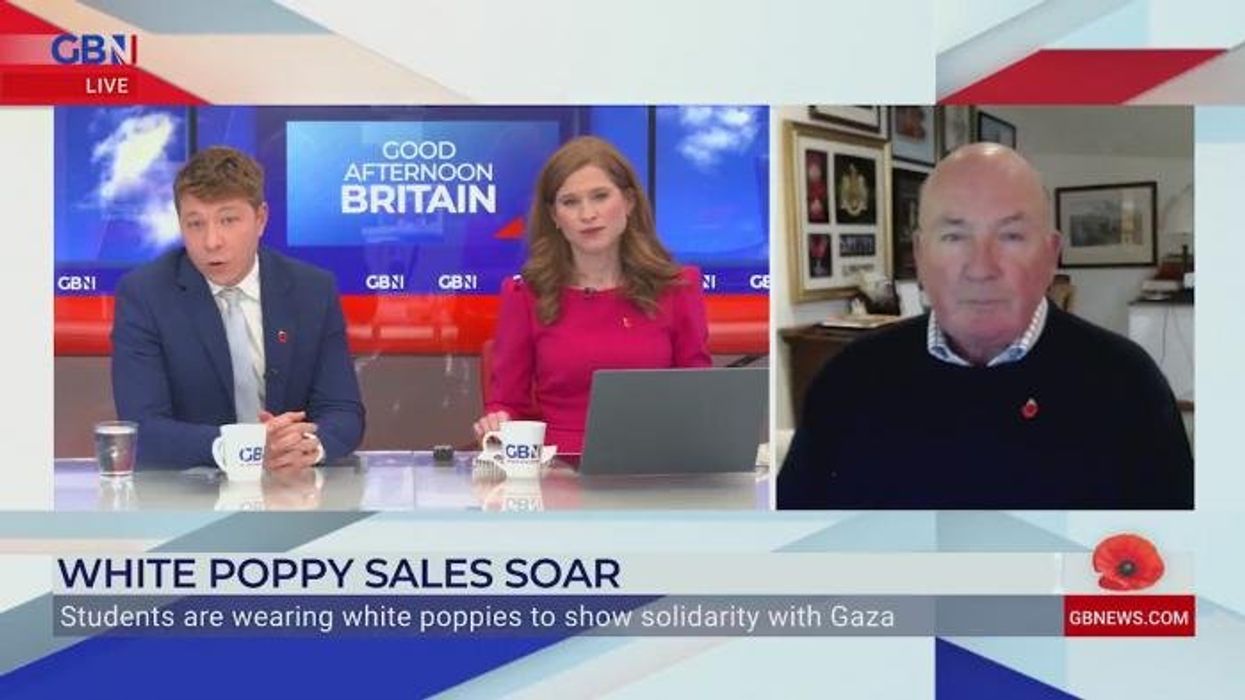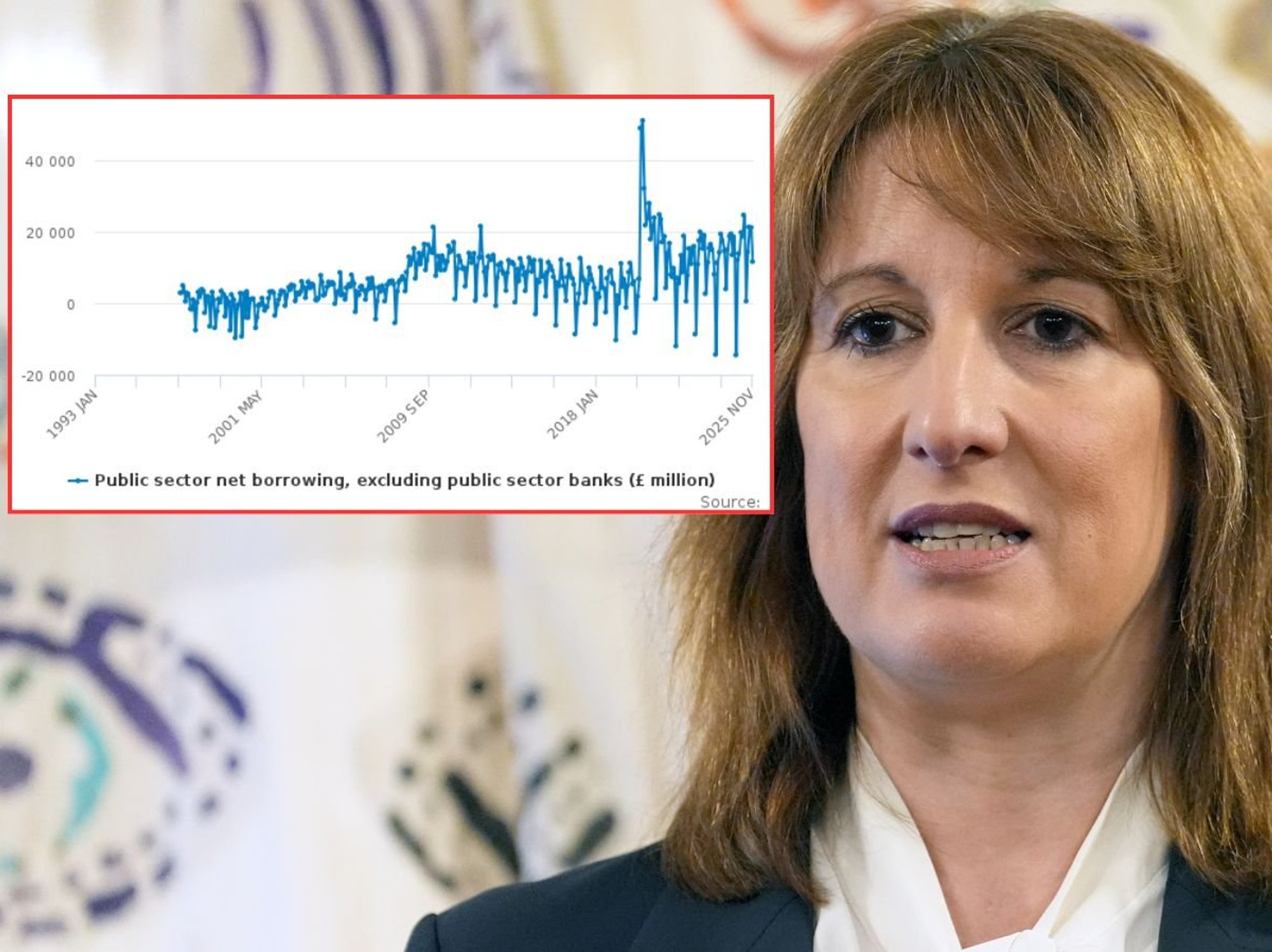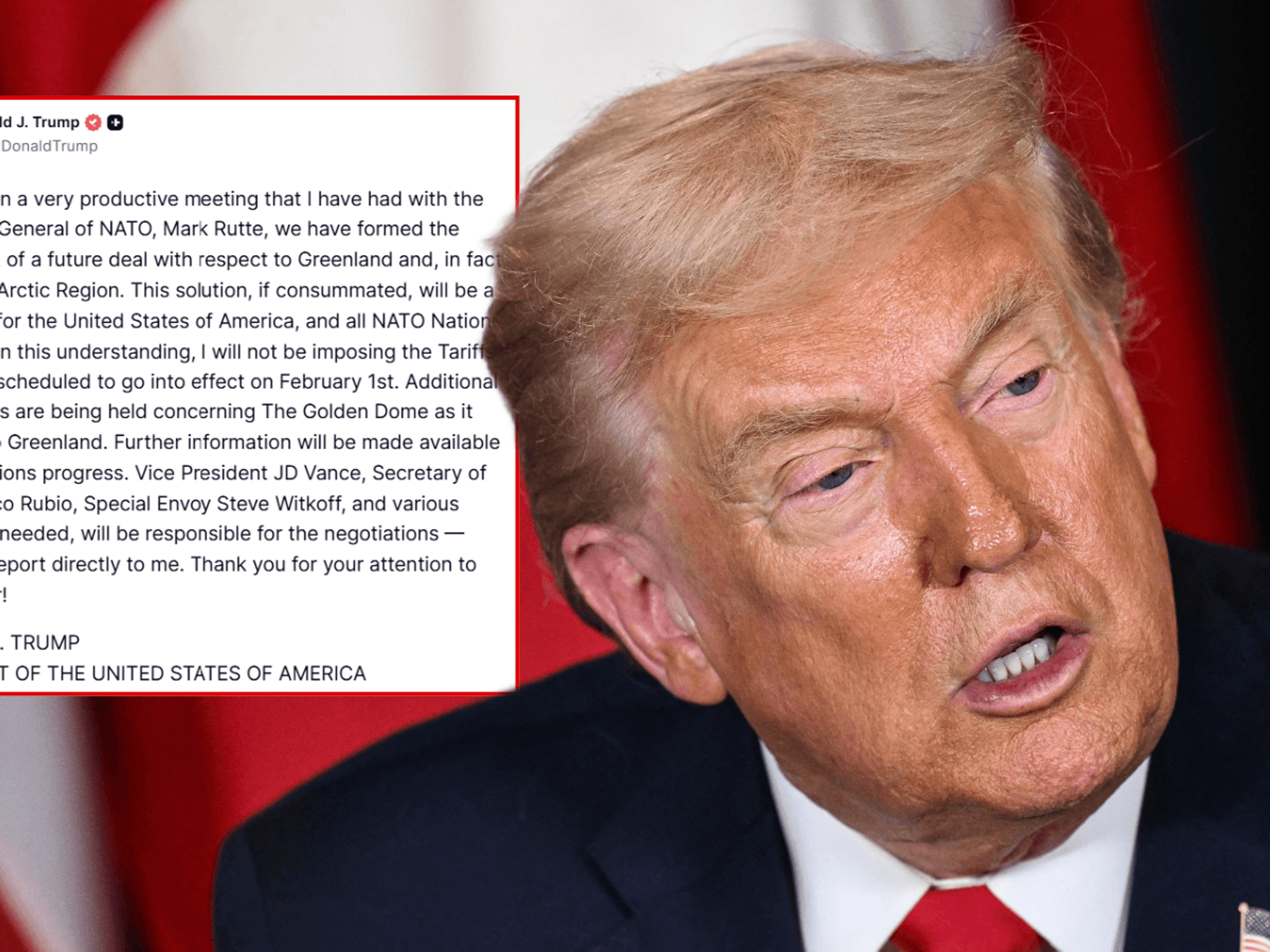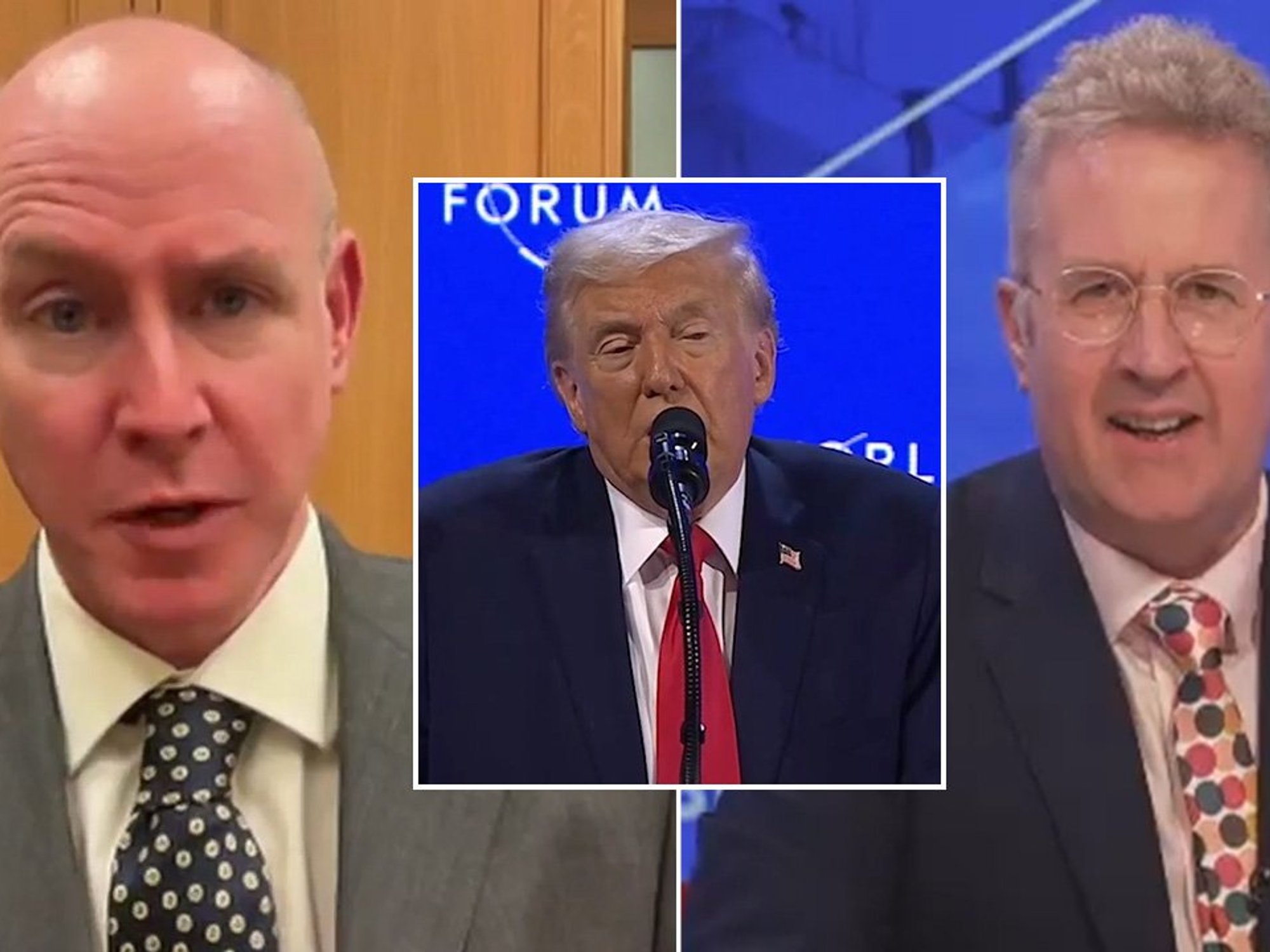White poppy campaign to 'decolonise' Remembrance Day launched and remember those 'killed or imprisoned for refusing to fight'

An Oscar-winning actor is set to speak at the national white poppy ceremony this weekend
Don't Miss
Most Read
Trending on GB News
An Oscar-winning actor who publicly backed the controversial "white poppy" movement that argues Remembrance Day should be "decolonised", has sparked fury from war heroes.
Sir Mark Rylance, who featured in Christopher Nolan's Dunkirk in 2022, says he has always "deeply admired" those that have taken part in the movement.
The Peace Pledge Union (PPU), who distributes the white poppy, has faced severe criticism for previously claiming Remembrance Day should be “decolonised”, and explaining “nationalist narratives” that “whitewash” and “glorify” the British Empire should be stopped. The movement began in 1933.
According to the PPU's website, the purpose of the white poppy is to commemorate all those who lost their lives during the war, including civilians of all nationalities.
They remember "those who are often excluded from the mainstream, such as refugees and victims of colonial conflicts."
They also aim to end militarism and any glorification of war, while maintaining a "commitment to peace."
Former shadow defence secretary James Cartlidge claimed this would "completely undermine" the intended message of the traditional poppy, disregarding the "sacrifice of those who gave their lives so that we can be free".
Mr Rylance, who received an Oscar for his performance in Steven Spielberg's Bridge of Spies in 2015, previously publicly supported the movement, saying: "I have always deeply admired and taken part in the white poppy remembrance of both civilian and military casualties of war.
"Civilians now far outnumber the tragic military casualties.
"I do not understand the white poppy to be in any way an opposition to the red poppy worn in remembrance of military casualties.
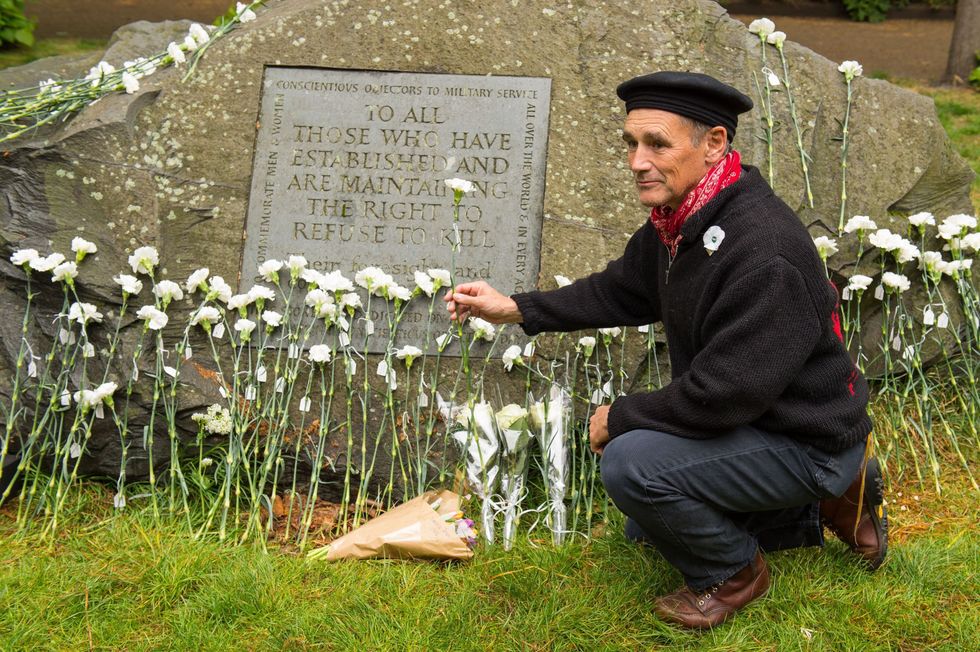
Oscar-winning actor Sir Mark Rylance has publicly backed the controversial white poppy movement that argues Remembrance Day should be 'decolonised', and has sparked fury from war heroes
|PA
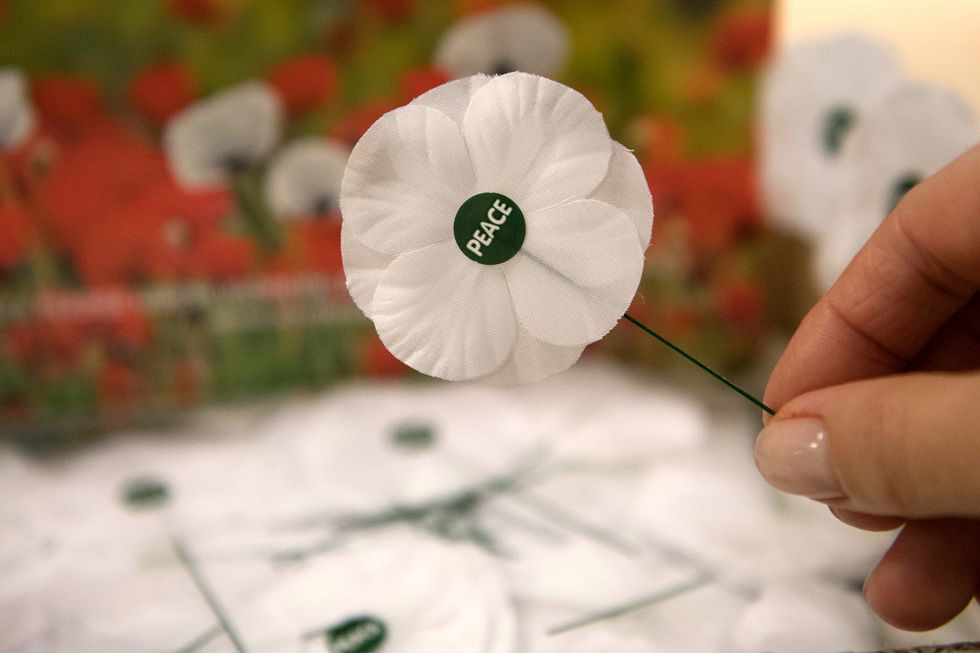
White poppies have been worn since 1933 and aim to represent all deaths, civilian and military, from war while puting a stop to the 'glorification' of war
|PA
"Unfortunately, wars are fought with and against civilians today, and I consider it an offence not to remember their suffering.
“Remembrance Day should be a day to remember and grieve the great losses caused by war, but it should also be a day to refocus our every effort to avert war with all our tools of peaceful reconciliation of conflict.
"Too often in my life, Remembrance Day seems a kind of shoulder shrug that war is inevitable. I do not believe it is.”
Mr Rylance, who is a PPU member, is also set to speak at the national white poppy ceremony at the weekend.
It will take place at Tavistock Square in central London, and will see a white wreath and white poppies laid upon the Conscientious Objectors' Commemorative Stone to commemorate those who chose not to fight, causing outrage, among army veterans.
Colonel Hamish de Bretton-Gordon expressed his fury at the actor while speaking to The Telegraph: "Mark is very happy to take money to perform in a film like Dunkirk but then just spits in the face of veterans still serving by wearing a white poppy."
LATEST DEVELOPMENTS
- Knifeman charged over mass stabbing attack on Huntingdon train also accused of attempted murder on London train earlier in the day
- Quick-thinking LNER train driver whose actions saved lives identified as Iraq war veteran
- British man found dead between parked cars near popular holiday hotspot as police launch probe
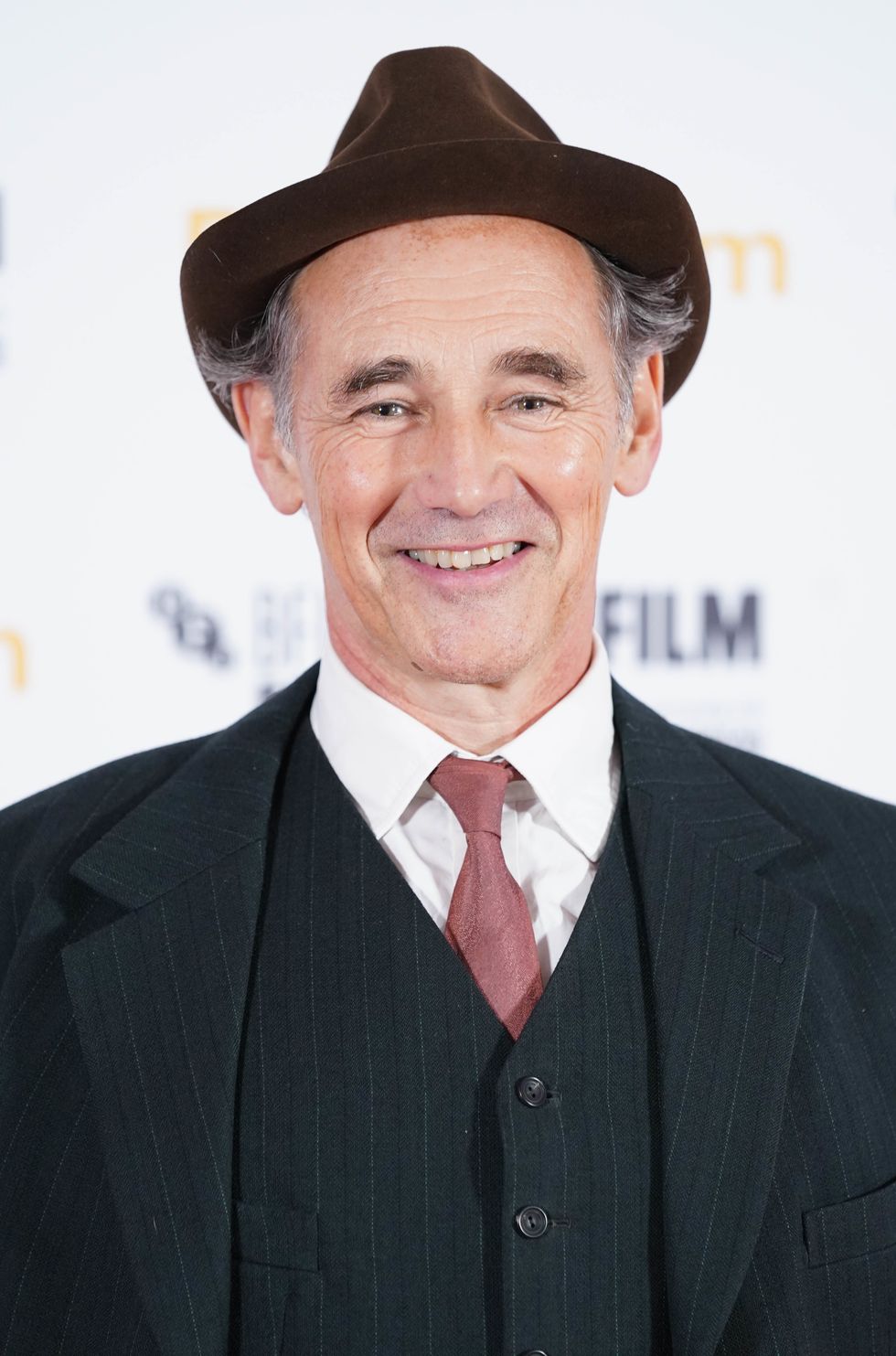
Sir Mark Rylance's comments have spared fury from army veterans, who claim he is 'spitting in the face' of war heroes
|PA
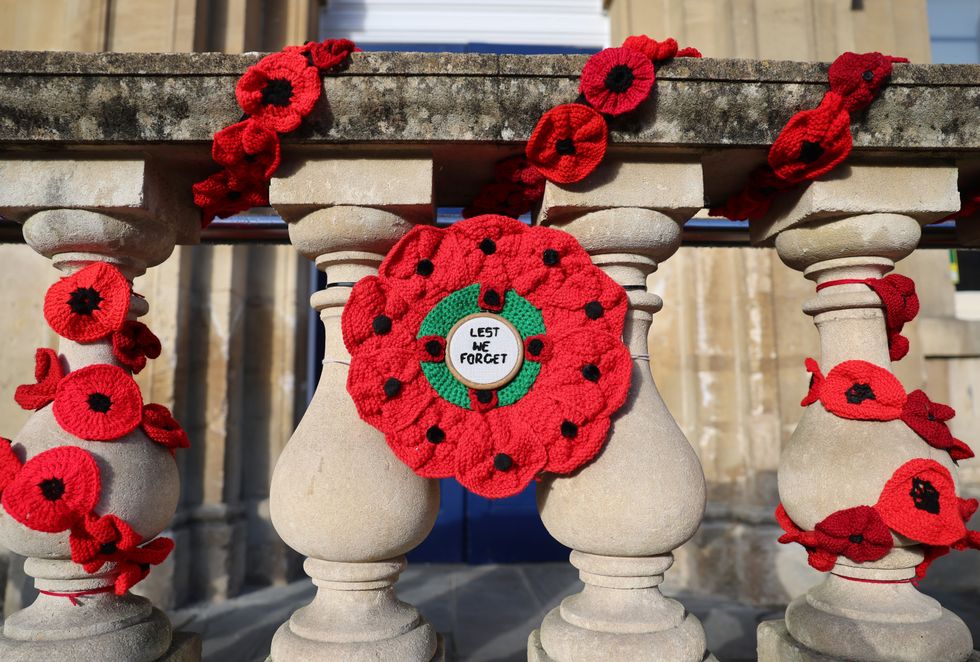
Traditional red poppies have been used for Remembrance Day since 1921
|PA
The traditional red poppy is said to represent the “blood of the millions” who died in the First World War, according to Col de Bretton-Gordon.
He continued: “The poppy is for everybody who suffered and died. Hitler saw civilians as combatants. So does [Vladimir] Putin. He is trying to kill as many civilians as possible in Ukraine… You shouldn’t differentiate."
And Col de Bretton-Gordon concluded with a powerful sentiment: “I can’t express it more determinedly how much I abhor this white poppy lot.”
Fellow army veteran Col Philip Ingram claimed the campaign was trying to “hijack” Remembrance Day, describing it as a "punch in the gut".
Speaking to the Telegraph, he said: “Every time someone attacks the symbolism of the red poppy and tries to undermine it, it’s like a punch in the gut for a veteran.
“We bite our tongues... but it hurts every time someone attacks the red poppy.”
The campaign has been criticised heavily in the past for its "decolonise remembrance" movement. In response, the PPU’s Remembrance Project Manager said: “When we still see politicians openly celebrating the British Empire, it is vital that we remember the impacts that colonial wars and violence have had – and continue to have – around the globe.
“We need to make space for the victims of colonial wars on Remembrance Day. This involves listening to the voices of those affected by that history and the ongoing impacts of colonialism, both in the UK and elsewhere.
"It involves actively challenging the racist legacies of colonialism that continue to influence whose lives are valued and whose are not.”
Meanwhile, late writer and poet Benjamin Zephaniah explained his reasoning behind his support of the movement: "I love wearing my white poppy... We have to remember all victims of war, not just the select few. And we have to work towards a world where there is no war."


